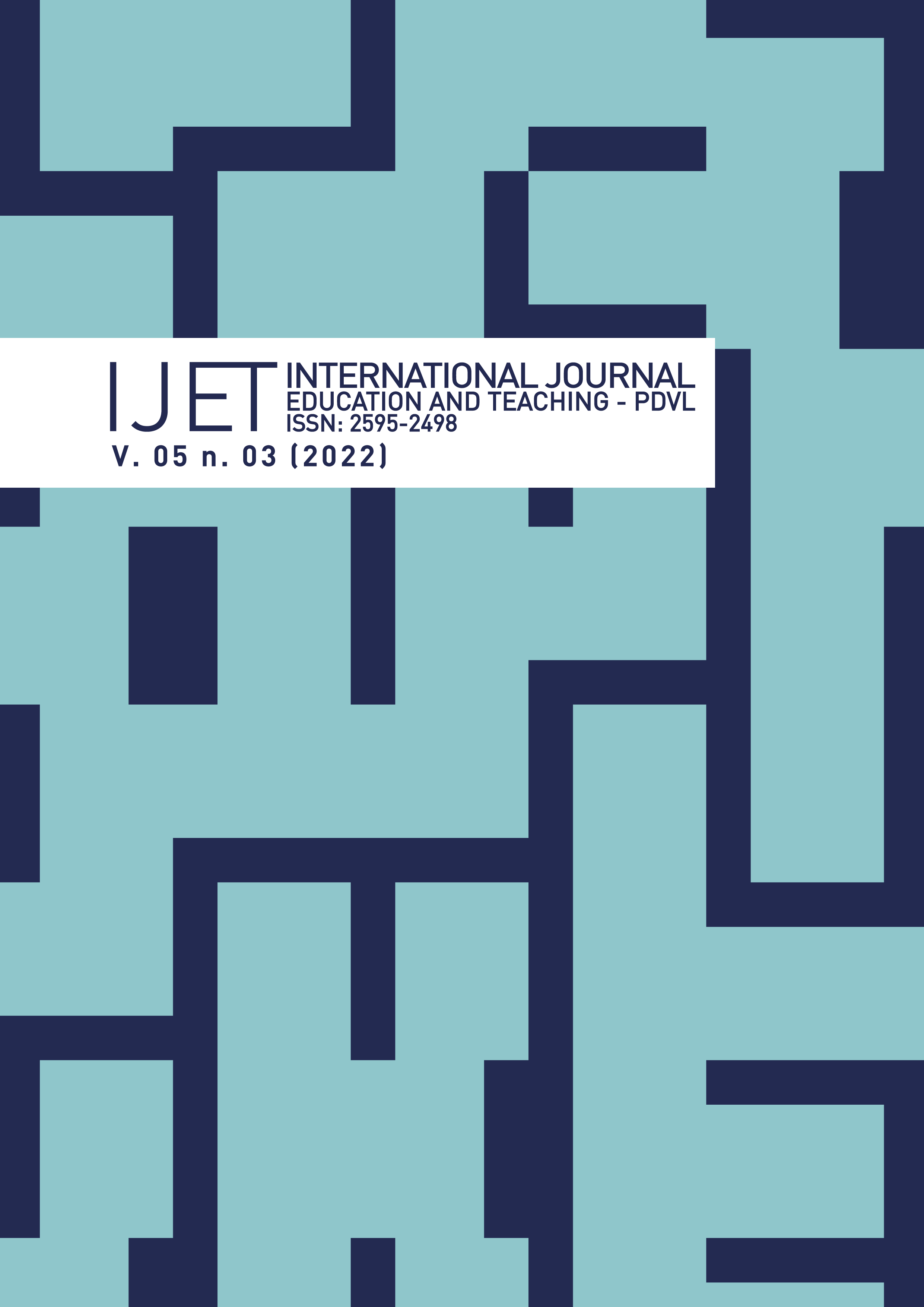FORENSIC LINGUIST: A POSSIBILITY OF PROFESSIONAL PERFORMANCE FOR A BRAZILIAN LICENCIATE DEGREE IN LETTERS FROM IFRN?
Keywords:
Licenciatura em Letras, Linguista Forense, Linguística Aplicada, Formação Acadêmica, Atuação ProfissionalAbstract
Write about this topic arises in the setting of concern regarding the future employment of the licentiate degree in letters, in the face of a labor market, in the field of teaching, increasingly limited and harassed by public policies of education Brazilian, mainly for the area of the Spanish Language. In this context, we aim in this research work to glimpse other fields of professional action, beyond teaching, specifically forensic linguistics. To achieve this, we resort to documentary, bibliographic and field research to find support for the understanding that a licentiate degree in letters would have other possibilities of professional performance. In the documentary and bibliographic research, we have focused on documents such as the pedagogical course projects, laws inherent to the subject, as well as seeking theoretical support in the thought of Colares (2017, Vichi (2021), Velasco & Vieira (2020), among others that would allow us to know, reflect and discuss the formation of licentiate degree in letters and the probable diversification of his performance and professional projection. In the field research, the data analyzed is a response to the semi-structured questionnaire research instrument that quite clearly reveals the lack of knowledge and information about other fields of action for a licentiate degree in letters other than teaching; We also concluded about the relevance of continuous training and specialized qualification to act in other fields such as forensic linguistics, because the training in Letters has all the initial input necessary for this field. We believe that this work is relevant because it brings support and information to define or redefine professional performance in an area that is, or is not, considered important for the Brazilian society, the teaching, and even more so, in the Spanish language teaching.
Downloads
References
BIAZI, T. M. D.; DIAS, L. C. F. O que é linguística aplicada. Anais do Universidade em foco: o caminho das humanidades. UNICENTRO, agosto, 2007.
COLARES, Virgínia (Org.) - LINGUAGEM & DIREITO [Livro eletrônico / versão gratuita]: caminhos para a linguística forense - uma homenagem a Malcolm Coulthard – São Paulo - Cortez Editora, 2017.
COULTHARD, Malcolm et al. Linguagem & Direito: os eixos temáticos [e-book] – Recife - ALIDI, 2015.
COULTHARD M & SOUSA-SILVA R (eds). Bilingual journal: Language and Law, Linguagem e Direito. 2014. Downloadable free at http://llld.linguisticaforense.pt/
GIL, Antônio Carlos - Como elaborar projetos de pesquisa - 4. ed. - São Paulo: Atlas, 2002.
¬¬¬¬¬¬_____________. Método e técnicas de pesquisa social. 6. ed. São Paulo: Editora Atlas S.A., 2008.
INSTITUTO FEDERAL DE EDUCAÇÃO, CIÊNCIA E TECNOLOGIA DO RIO GRANDE DO NORTE. Projeto Pedagógico do Curso de Licenciatura Letras Espanhol. Natal RN, 2018.
INSTITUTO FEDERAL DE EDUCAÇÃO, CIÊNCIA E TECNOLOGIA DO RIO GRANDE DO NORTE. Projeto Pedagógico do Curso de Licenciatura Letras Português-Espanhol. Natal RN, 2021.
JAPIASSÚ, H. Interdisciplinaridade e patologia do saber. Rio de Janeiro: Imago, 1976.
KNECHTEL, Maria do Rosário. Metodologia da pesquisa em educação: uma abordagem teórico-prática dialogada. Curitiba: Intersaberes, 2014.
LAKATOS, Eva M. e MARCONI, Marina M. - Fundamentos de metodologia científica - 5. ed. - São Paulo: Atlas 2003
SEVERINO, Antônio Joaquim - Metodologia do Trabalho Científico - 23ª ed. rev. e atual. - São Paulo: Cortez, 2007.
VELASCO, M & VIEIRA, D. Histórico de idas y vueltas en la enseñanza oficial de lengua española acentúa el sabor a incertidumbre en la enseñanza y en la formación de profesores. Cointer.institutoidv.org, 2022. Disponível em: < <https://cointer.institutoidv.org/smart/2020/pdvl/uploads/1720.pdf Acesso em 13 de agosto de 2022>.
VICHI, Leonardo, Manual Básico de Linguística Forense: [Livro eletrônico / versão gratuita]: da análise do discurso ao perfilando em investigações criminais. 2ª edição. Río de janeiro, Editora Alpheratz, 2021.

Downloads
Published
Conference Proceedings Volume
Section
License
Copyright (c) 2022 MARIA TRINIDAD PACHERREZ VELASCO, NATIANE PASSOS DE OLIVEIRA ABRANTES (Autor)

This work is licensed under a Creative Commons Attribution 4.0 International License.





